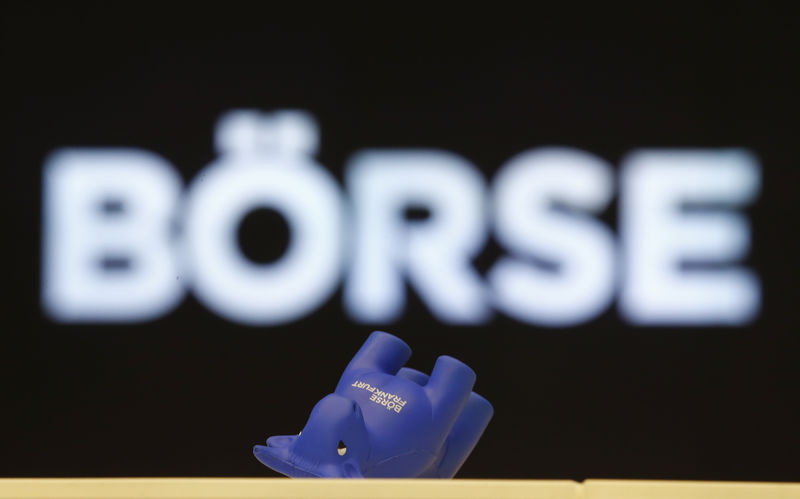By Geoffrey Smith
Investing.com -- Europe’s stock markets were on course for another day of catastrophic losses on Thursday after U.S. President Donald Trump announced a 30-day ban on accepting flights from Europe, another devastating blow to a battered travel sector, and one that raises the risk of a recession on both sides of the Atlantic.
Selling was, as usual, worst in the most directly affected sectors, and again it was those with the weakest finances that suffered most.
That said, the market wasn’t much kinder even to those with stronger balance sheets. The sharp gap down forced investors to sell what they could. As such, even balance sheet stalwarts like Nestle (SIX:NESN) and Novartis (NYSE:NVS) were down 5.3% and 6.2%, respectively. Energy supplier RWE (MI:RWE), which had been a relative haven for German investors, also finally capitulated, falling 9.4%.
By 5:40 AM ET (0940 GMT), the benchmark Stoxx 600 was down 6.2% at 312.52, its lowest since September 2013. The German DAX was down 6.7%, below 10,000 points, while the U.K. FTSE 100 was down 5.7%.
Among the biggest losers was Cineworld (LON:CINE) shares, which fell 34% after it admitted that it could breach its debt covenants if things turn really bad this year.
“Under the specific downside scenario…of the Group losing the equivalent of between two and three months' total revenue across the entire estate there is a risk of breaching the Group's financial covenants, unless a waiver agreement is reached with the required majority of lenders.”
The movie theater operator borrowed heavily to finance acquisitions over the last two years, aiming to improve its competitive heft vis-à-vis AMC. It now faces months of sharply-reduced revenue, as consumers stay home rather than risk infection.
Norwegian Air Shuttle (OL:NWC) shares also fell another 16% as Trump’s travel ban stopped a further vital source of revenue for the struggling airline, while upstream oil specialist Tullow Oil 's (LON:TLW) shares fell another 12.7% after it warned that it wouldn’t generate any cash this year below an average oil price of $45 a barrel.
Tullow also slashed its capital spending forecast by 30% to $350 million and said it had available liquidity of $700 million.
A quieter, but nonetheless more ominous, warning came from FTSE-listed middle eastern hospital operator NMC Health (LON:NMC). It admitted on Thursday that independent investigators appointed to look into its finances had found “evidence leading to suspected fraudulent behaviour in relation to some elements of NMC's previous financial activities.”
The company, which had previously described reports detailing apparent irregularities in its accounts as “malicious” inventions, had announced last week that it had discovered nearly $3 billion in debt that it. NMC’s shares are already suspended from trading but the last two announcements appear to raise the risk that existing shareholders may be wiped out.
